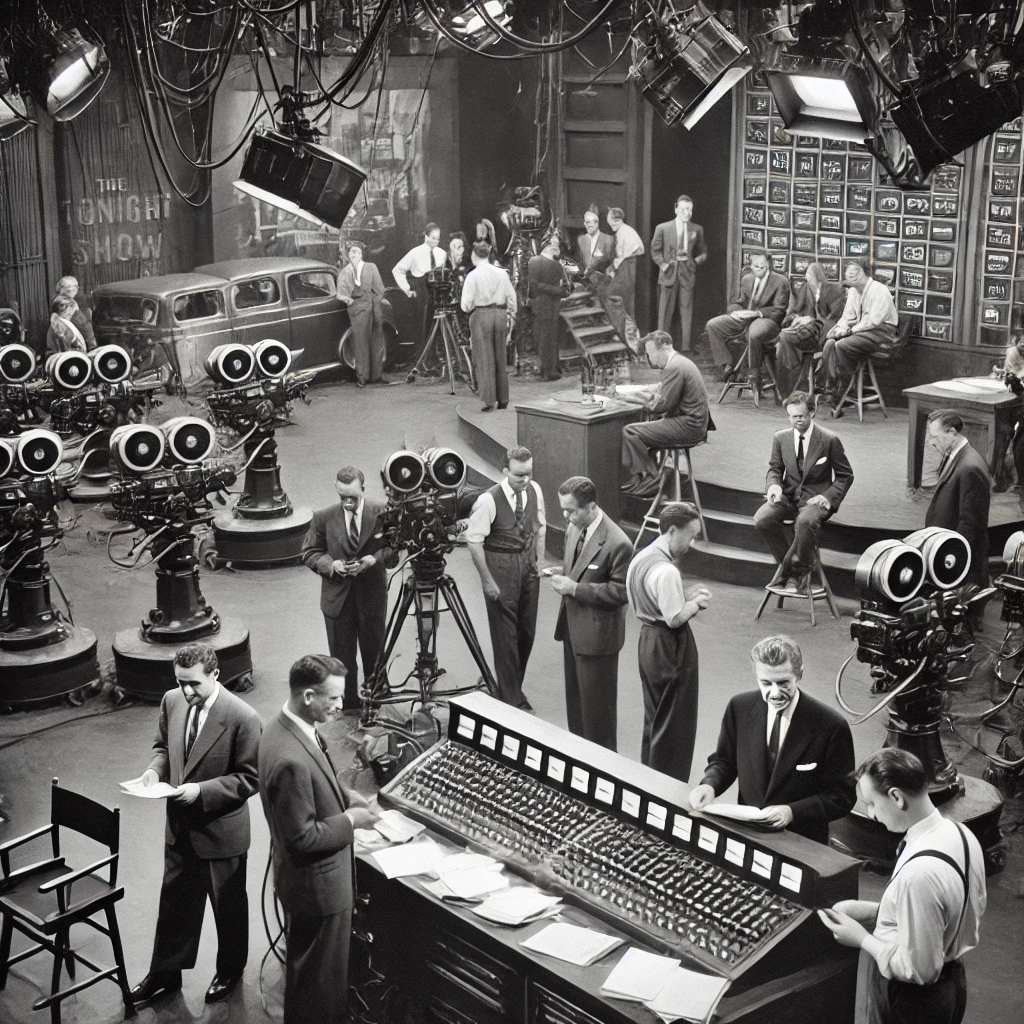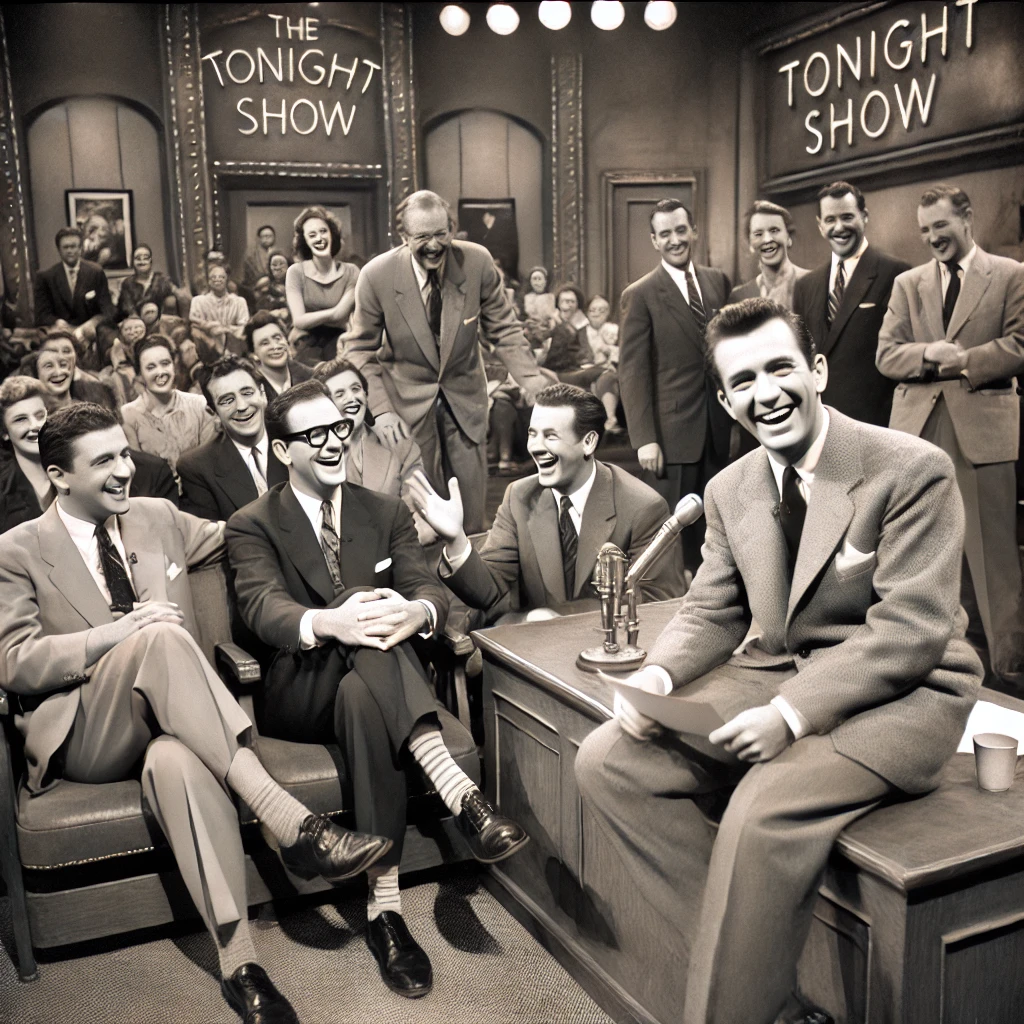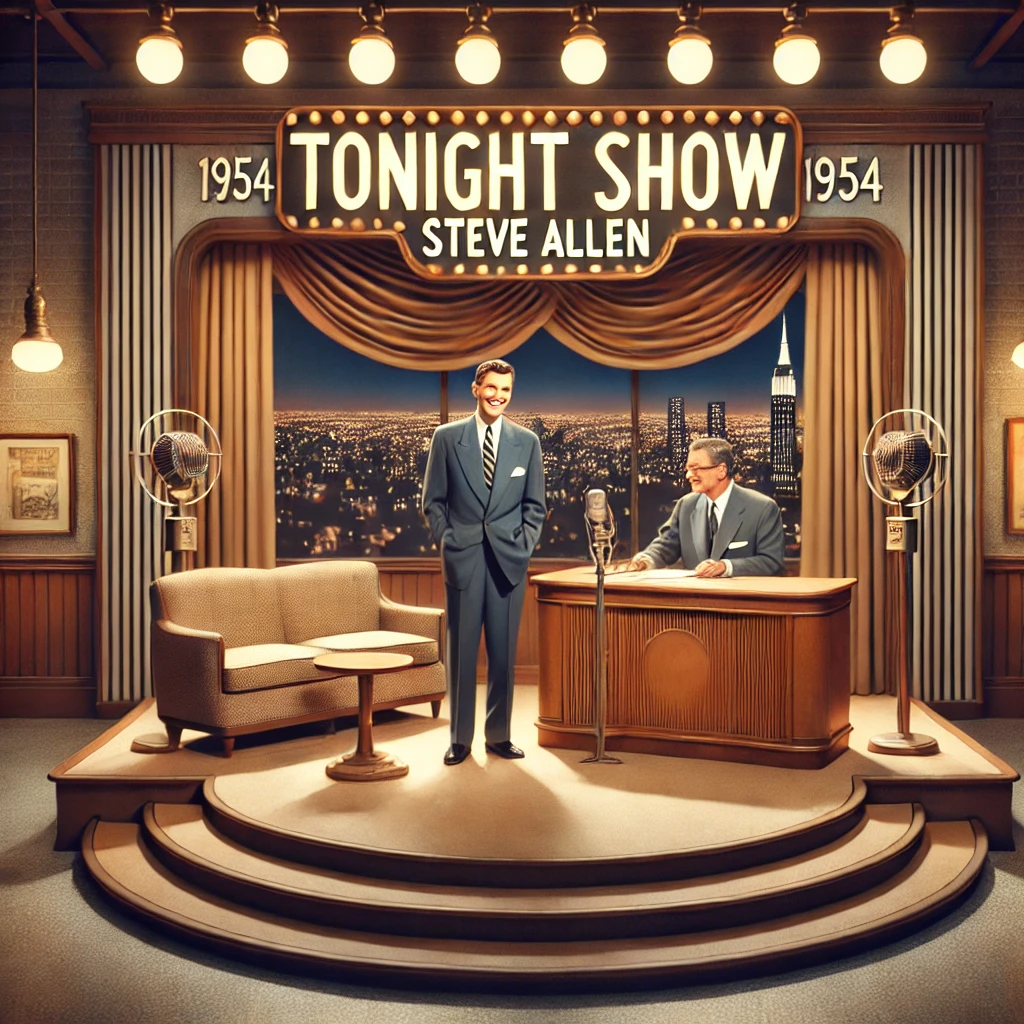On September 27, 1954, a new era of television entertainment began with the premiere of The Tonight Show (originally titled Tonight!), hosted by the charismatic Steve Allen. This landmark program set the stage for late-night television as we know it today, combining talk show elements with variety performances and comedic sketches. The Tonight Show not only changed the landscape of American television but also laid the groundwork for future hosts and formats, leaving an indelible mark on pop culture.

The Format and Innovation
When The Tonight Show first aired, it introduced a fresh and innovative format that combined interviews with celebrity guests, musical performances, and comedic segments. Steve Allen’s quick wit and improvisational style made him a natural fit for the role, allowing him to engage both his guests and the audience in a way that felt intimate and spontaneous. The show’s unique blend of humor and entertainment captivated viewers, offering a much-needed escape from the pressures of everyday life.
The program’s format evolved over time, incorporating elements that would later become staples of late-night television. Allen’s willingness to experiment with sketches and musical performances set a precedent for future hosts, emphasizing the importance of variety in keeping audiences entertained. This pioneering spirit helped shape the identity of late-night television, creating a space where comedy, music, and conversation could coexist.

Cultural Significance
The Tonight Show quickly became a cultural phenomenon, reaching audiences across the nation. It provided a platform for rising stars and established celebrities alike, showcasing a diverse array of talent. The show’s emphasis on live performances and spontaneous interactions contributed to its popularity, as viewers tuned in to see their favorite stars in a relaxed and engaging setting.
The program also played a significant role in shaping public opinion and cultural trends. Through interviews and comedic segments, The Tonight Show reflected and influenced the social climate of the time, addressing contemporary issues and incorporating popular culture references. This connection to the zeitgeist made the show an essential part of American life, as it provided not only entertainment but also commentary on societal norms and events.

Lasting Legacy
The legacy of The Tonight Show extends far beyond its initial run with Steve Allen. The show’s success paved the way for future late-night talk shows, establishing a template that would be followed by hosts like Johnny Carson, Jay Leno, and Jimmy Fallon. Each successor built upon Allen’s foundation, adding their unique styles while maintaining the core elements that made the show a hit.
The influence of The Tonight Show can be seen in the countless late-night programs that have emerged since its debut. The format of celebrity interviews, musical performances, and comedic sketches has become a staple of television programming, inspiring a generation of comedians and entertainers to pursue careers in the industry. Late-night television has become an important cultural institution, shaping public discourse and providing a platform for emerging voices.
Influence on Comedy and Entertainment
The Tonight Show also played a pivotal role in the evolution of comedy on television. Steve Allen’s improvisational style and willingness to push boundaries encouraged comedians to explore new material and techniques. The show’s format allowed for spontaneous humor, fostering an environment where both established and emerging comedians could thrive.
As a result, many of the greatest comedians of the time made appearances on The Tonight Show, leading to memorable moments that would resonate with audiences for years to come. The show became a launching pad for careers, with performers gaining national recognition and paving the way for future success.
Reflection on Television’s Evolution
Today, The Tonight Show is a reminder of how far television has come since its premiere in 1954. The landscape of late-night programming has evolved dramatically, incorporating new technologies and platforms that cater to a diverse audience. However, the essence of what makes The Tonight Show special—a blend of humor, talent, and connection—remains unchanged.
The premiere of The Tonight Show on September 27, 1954, marked a significant milestone in the history of television. Steve Allen’s innovative approach to late-night entertainment set the stage for a genre that continues to capture the hearts of viewers today. As we celebrate the legacy of The Tonight Show, we acknowledge its role in shaping not only the landscape of television but also the broader cultural narrative of American society. The show’s enduring impact serves as a testament to the power of creativity and connection in entertainment.
